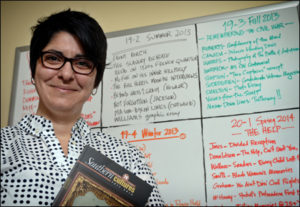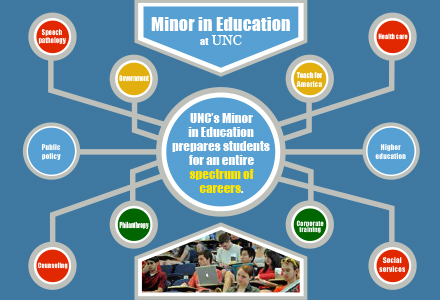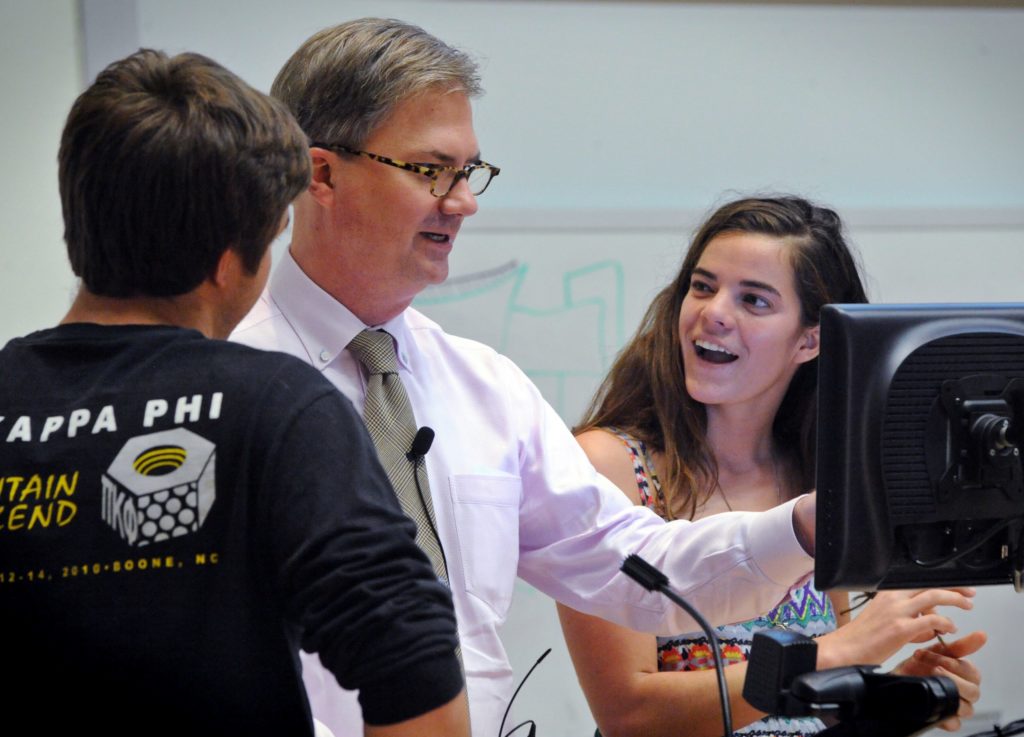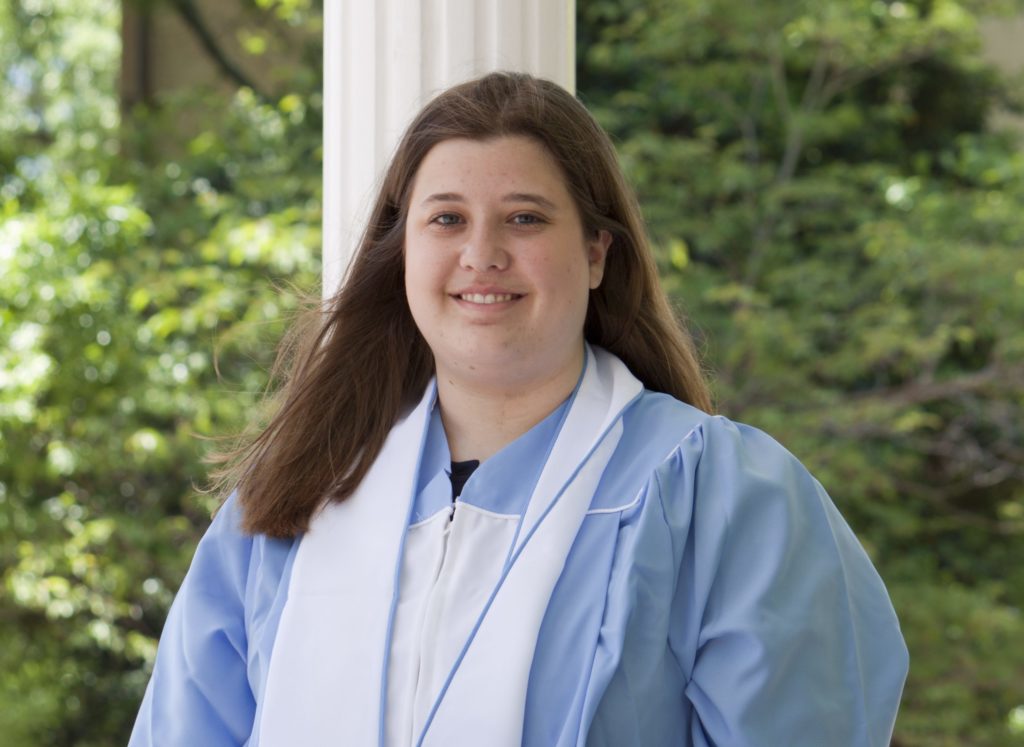 As the journal “Southern Cultures” celebrates 20 years in print at UNC, Executive Editor Ayse Erginer wants to meet the growing readership wherever they are.
As the journal “Southern Cultures” celebrates 20 years in print at UNC, Executive Editor Ayse Erginer wants to meet the growing readership wherever they are.
It’s been her experience that they don’t all come from the same place.
Erginer is a proud Southerner. Born in Rhode Island, she has deep family ties there on her mother’s side. She also has family in Istanbul – her Turkish father came to America for postgraduate study. The family moved to the North Carolina Piedmont when she was 8.
To some, she said, that doesn’t sound Southern. But it does to her.
“I am a Turkish-American Yankee raised in North Carolina and consider myself Southern even though I have very different cultural influences,” she said. “You can’t paint the South with a broad brush.”
“Southern Cultures” is Carolina’s peer-reviewed quarterly magazine about the history and cultures of the American South. Each issue includes scholarly articles, memoirs, interviews, reviews, photography, poetry and more. Anchored at the Center for the Study of the American South (CSAS) and published by UNC Press, it serves classrooms, scholars, students, faculty and readers from all over the world who are interested in issues of the South.
Erginer came to Carolina in 1987 and earned degrees in psychology and anthropology. She then headed to Sarah Lawrence College in Bronxville, N.Y., where she earned a master’s degree in history with a concentration in American women’s history.
“For me, Chapel Hill was home. If people asked me where I was from, that’s what I’d say. I felt like I grew up here, and it took leaving North Carolina to realize how much I loved it,” she said.
After New York, Erginer lived in Los Angeles, working for writers in television and film. She returned to Chapel Hill in 2002 to work on “This House Is Home,” an art project and public-housing initiative at CSAS. When the funding ended, the center wanted her to stay. Since then, she’s done every job there is to do at “Southern Cultures.”
“I feel like all my life and job experiences have led me here. I have a history degree, I have research experience, I’m an editor,” she said. “And I love the South. I’m proud of it.”
Erginer and Deputy Editor Emily Wallace produce “Southern Cultures” four times a year. Harry Watson, a history professor and founding co-editor of the magazine, and Jocelyn Neal, director of CSAS, serve as faculty editors.
At its 20th birthday, the journal is thriving in a time when many journals struggle to stay afloat. As interest in studying the South grows, so has the journal’s readership, which includes tens of thousands of online readers through Project Muse in addition to nearly 1,500 print subscribers. Readers can also download individual issues on most tablet readers.
Loose Leaf, a new multimedia arm of the magazine’s website, provides enhanced online content that reflects and comments on what is in print.
“This is intended to celebrate our new forward direction in our 20th year, when we’re exploring more ways to meet people where they are,” Erginer said. “We know readers like these short pieces that encapsulate topics of interest, and we want to extend and expand on content that’s in print while ideally bringing in new readers who have found us through this readily shareable medium.”
It was for this new initiative that Erginer, Wallace, and their colleague Ashley Melzer recently joined journal co-founder and retired sociology professor John Shelton Reed as he set out to barbecue a goat as research for his next book. They brought a video camera and spent the day with Reed – and tasted the finished product.
“This is ‘Southern Cultures’ in a nutshell: On the day we receive an essay about Gulf Coast devastation, a very important issue for the South, we also have John Shelton Reed barbecuing a goat prepared for him by a halal butcher,” Erginer said. “And anything and everything in between.”
Contributing to Carolina’s culture
All academic disciplines can be connected to the South, said Erginer. Everything from urban planning to anthropology, from history to marine sciences – they all can be studied through a Southern lens.
The magazine’s most recent issue commemorated the sesquicentennial of the Civil War. It included essays on topics like the birth of photojournalism at the Battle of Antietam and the struggle over history and memory in the pages of “Confederate Veteran” magazine, poetry from U.S. Poet Laureate Natasha Trethewey and Civil War remembrances from UNC’s Southern Oral History Program.
Erginer is currently preparing for the magazine’s seventh music issue, which will be published in Winter 2014. Historically, it’s a popular issue, Erginer said, and like all the theme issues, it is likely to be a gateway to a broader audience.
“An outside readership finds us through special issues, like we’ve done on music, photography, food and civil rights, important theme clusters that resonate with how people all over the world experience the South,” she said. “And we’re always trying to reach more, to foster new scholarship, to feature young scholars.”
Those young scholars are a big part of Erginer’s mission at “Southern Cultures.” The magazine’s content is used in classrooms across the country, and the academic work of graduate students often makes it into the pages of the magazine. Erginer employs a group of work-study students as editorial assistants, with their names included in the masthead.
“I take that mentoring aspect of the magazine very seriously,” she said. “That is part of the way we give back to the University – we work hard to foster undergraduate work and prepare them for their careers ahead.”
Carolina faculty review essays, contribute their own scholarship and serve on the editorial board along with professors from across the nation. The magazine’s proximity to such a variety of faculty has enriched its content. Erginer said she is still amazed to have such content as interviews with author Eudora Welty by Joel R. Williamson Eminent Professor of History William Ferris.
“What a rich resource we have here!” she said. “We’re lucky to have world-class scholars who are also wonderful supporters.”
The next 20 years
Looking ahead, Erginer can’t envision a time when the magazine will run out of ways to explore and celebrate the South – even to complicate how we see it.
“Not every magazine about the South wants to invite a complicated view. But, ‘Southern Cultures’ is tasked with uncovering, discovering and rediscovering what the South is and what Southern is,” she said. “So, we’re constantly asking those questions: Where is the South, what is the South, who is Southern and what makes somebody Southern?”
It’s important to Erginer that “Southern Cultures” continues to represent the way people live, and that means everybody who is a part of the South.
It includes the American Indians who are native to the South and the Vietnamese who work on Gulf Coast shrimp boats, the Lebanese who settled in Mississippi in the 1800s and those who can trace their Southern heritage to the Revolutionary War, and cultures that experienced slavery.
It includes Erginer, too.
“It took us a while to define ‘everybody,’ and Southerners still don’t necessarily agree on that,” she said. “In exploring these questions about the South, we’ve pushed those boundaries, and we’ll continue to push them.”



